July 30 stands as one of history’s most eventful days, witnessing the rise and fall of empires, groundbreaking discoveries, and moments that shaped our modern world across centuries of human achievement.
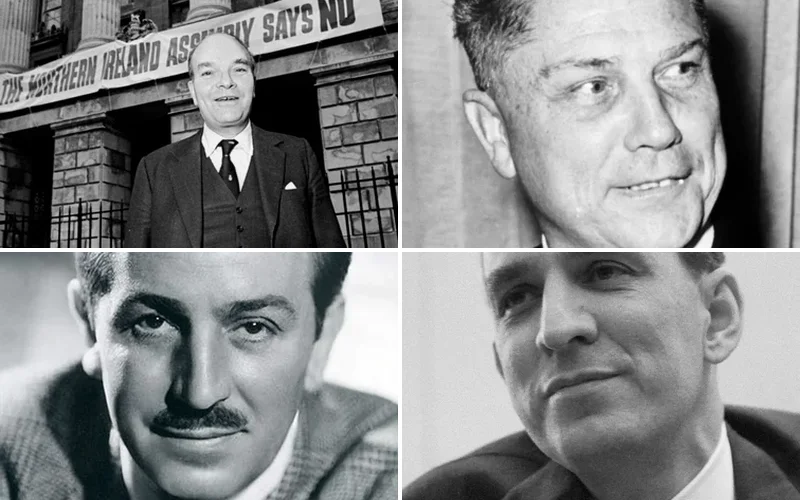
Politics and Government Events on July 30
1912 – Emperor Meiji Dies, Taishō Era Begins

Japan’s Emperor Meiji died on this historic date, marking the end of the Meiji Restoration era. His son Yoshihito ascended to the throne, becoming Emperor Taishō and ushering in a new chapter of Japanese history.
The transition symbolized Japan’s continued modernization and growing influence as a world power. The Taishō era would bring democratic reforms and further westernization to Japanese society.
1956 – “In God We Trust” Becomes Official US Motto
President Dwight D. Eisenhower signed a congressional resolution establishing “In God We Trust” as America’s official national motto. This decision reflected the nation’s Cold War emphasis on religious values against atheistic communism.
The motto replaced the unofficial “E Pluribus Unum” and sparked ongoing debates about separation of church and state. The phrase had already appeared on American currency since the Civil War era.
1965 – Medicare and Medicaid Established
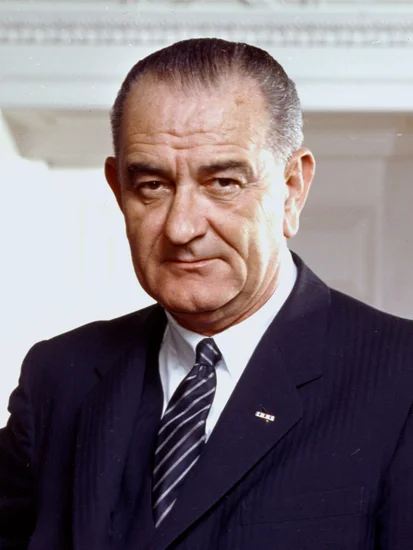
President Lyndon B. Johnson signed the Social Security Act of 1965, creating Medicare and Medicaid programs. These groundbreaking initiatives provided healthcare coverage for elderly Americans and low-income families for the first time.
The legislation represented a major expansion of the federal government’s role in healthcare. Johnson’s Great Society program transformed American social policy and created lasting safety nets for vulnerable populations.
1969 – Nixon’s Surprise Vietnam Visit
President Richard Nixon made an unscheduled visit to South Vietnam, meeting with President Nguyễn Văn Thiệu and military commanders. This dramatic diplomatic gesture demonstrated America’s continued commitment to the South Vietnamese government.
The visit occurred during a critical phase of the Vietnam War as Nixon pursued his “Vietnamization” strategy. The meeting aimed to reassure allies while gradually transferring combat responsibilities to South Vietnamese forces.
1974 – Watergate Tapes Released
President Nixon released subpoenaed White House recordings following a Supreme Court order in the Watergate investigation. These tapes contained damaging evidence that would ultimately lead to Nixon’s resignation just days later.
The recordings revealed presidential involvement in the cover-up of the Watergate break-in. This constitutional crisis demonstrated the principle that no American, including the president, stands above the law.
1980 – Vanuatu Gains Independence
The Pacific nation of Vanuatu achieved independence from joint British-French colonial rule. This milestone ended the unique “condominium” arrangement that had governed the island nation since 1906.
The new republic faced immediate challenges including political instability and economic development. Vanuatu’s independence marked another step in the decolonization of the Pacific region.
1981 – Polish Food Riots in Łódź
Approximately 50,000 demonstrators, mostly women and children, protested food shortages in Communist Poland’s industrial city of Łódź. These massive demonstrations highlighted the growing economic crisis facing the communist government.
The protests reflected widespread public frustration with rationing and empty store shelves. These events contributed to the mounting pressure that would eventually lead to the Solidarity movement’s triumph.
Military and Naval History on July 30
1916 – Black Tom Explosion Devastates New York Harbor

German saboteurs detonated munitions at the Black Tom freight yard in New York Harbor, killing four people and destroying $20 million in military supplies. The massive explosion shattered windows across Manhattan and damaged the Statue of Liberty.
This act of wartime terrorism demonstrated the vulnerability of American infrastructure during World War I. The blast represented one of the most successful foreign sabotage operations on American soil.
1945 – USS Indianapolis Sunk by Japanese Submarine
Japanese submarine I-58 torpedoed the USS Indianapolis after it delivered components for the atomic bomb to Tinian Island. The heavy cruiser sank in just twelve minutes, leaving approximately 900 sailors in shark-infested waters.
Only 316 men survived the ordeal, making it one of the worst naval disasters in American history. The tragedy occurred just days before Japan’s surrender, highlighting the war’s deadly persistence until its final moments.
1971 – Deadly Mid-Air Collision Over Japan
An All Nippon Airways Boeing 727 collided with a Japanese Air Force F-86 fighter jet over Morioka, killing all 162 people aboard both aircraft. The disaster remains one of Japan’s deadliest aviation accidents.
The collision raised serious questions about air traffic control procedures and military-civilian flight coordination. This tragedy led to significant improvements in Japanese aviation safety protocols.
2006 – Israeli Airstrike in Lebanon

Israeli forces conducted an airstrike that killed 28 Lebanese civilians, including 16 children, during the 2006 Lebanon War. The attack intensified international criticism of Israel’s military operations in southern Lebanon.
The incident highlighted the challenges of urban warfare and civilian protection in modern conflicts. International humanitarian organizations condemned the strike as disproportionate and called for immediate ceasefire negotiations.
Science and Discovery Milestones on July 30
1971 – Apollo 15 Lunar Landing
Astronauts David Scott and James Irwin landed the Apollo Lunar Module Falcon on the Moon’s surface during the Apollo 15 mission. This historic landing marked the first time humans brought a lunar rover to explore the Moon’s terrain.
The mission represented a major advancement in lunar exploration capabilities and scientific research. The rover allowed astronauts to travel farther from their landing site than any previous Apollo mission.
2003 – Extinct Species Briefly Resurrected
Scientists successfully cloned a Pyrenean ibex named Celia, briefly bringing the extinct species back to life. The clone died within minutes due to lung defects, making the Pyrenean ibex the first species to go extinct twice.
This groundbreaking experiment demonstrated both the potential and limitations of cloning technology for conservation efforts. The achievement raised important ethical questions about de-extinction and species preservation.
2020 – NASA’s Mars 2020 Mission Launches

NASA launched the Mars 2020 mission carrying the Perseverance rover on an Atlas V rocket from Cape Canaveral. The mission aimed to search for signs of ancient microbial life on Mars and collect samples for future return to Earth.
The launch represented a major milestone in planetary exploration and the search for extraterrestrial life. Perseverance would later make history by successfully flying the first powered aircraft on another planet.
Cultural and Arts Events on July 30
1932 – First Technicolor Cartoon Premieres
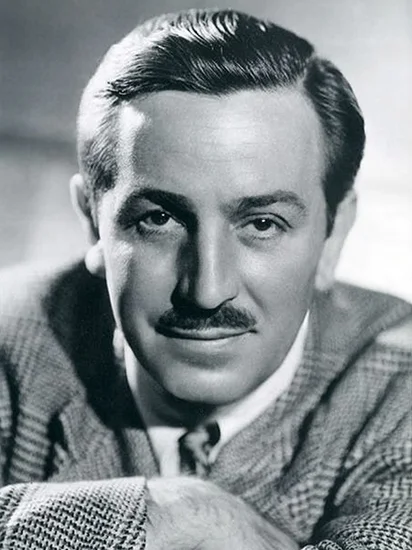
Walt Disney’s “Flowers and Trees” premiered as the first cartoon short filmed in Technicolor. The groundbreaking animation would go on to win the first Academy Award for Best Animated Short Film.
This technological innovation revolutionized animation and established Disney as a leader in cinematic artistry. The success of Technicolor animation paved the way for future Disney classics and transformed the entertainment industry.
2006 – Top of the Pops Final Broadcast

The BBC’s “Top of the Pops” aired its final episode after 42 years of showcasing popular music. The legendary program had launched countless musical careers and defined British pop culture for generations.
The show’s cancellation marked the end of an era in television entertainment and music promotion. “Top of the Pops” had become a cultural institution that shaped how audiences discovered and experienced popular music.
2011 – Royal Wedding of Zara Phillips

Queen Elizabeth II’s eldest granddaughter Zara Phillips married former rugby union player Mike Tindall in Edinburgh. The ceremony attracted international attention as another chapter in modern royal family history.
The wedding represented a more relaxed approach to royal protocol compared to previous generations. The couple’s sporting backgrounds and down-to-earth personalities resonated with contemporary British society.
Religious and Social Events on July 30
1981 – Polish Solidarity Movement Emerges
The massive demonstrations in Łódź represented a pivotal moment in the Polish Solidarity movement’s development. Catholic Church leaders provided moral support for the peaceful protesters demanding economic reforms.
These events strengthened the alliance between religious and labor movements in Communist Poland. The protests demonstrated the power of non-violent resistance against authoritarian government policies.
1990 – IRA Assassination of Conservative MP
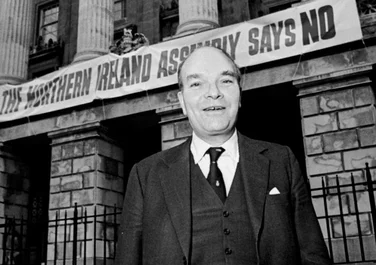
Ian Gow, a Conservative Member of Parliament, was killed by an IRA car bomb at his home after publicly stating Britain would never surrender to terrorist demands. His assassination marked a significant escalation in sectarian violence.
Gow’s death shocked the British political establishment and intensified security measures for government officials. The attack demonstrated the ongoing threat posed by extremist groups to democratic institutions.
Business and Economic Events on July 30
2003 – End of an Era for Volkswagen Beetle

The last original-style Volkswagen Beetle rolled off the assembly line in Puebla, Mexico, ending 65 years of continuous production. The iconic car had become a symbol of affordable transportation and 1960s counterculture.
The Beetle’s discontinuation marked the end of one of automotive history’s most successful designs. Over 21 million units were produced, making it the world’s best-selling car for decades.
2012 – Massive Power Grid Failure in India
Northern India experienced a catastrophic power grid collapse that left over 300 million people without electricity. The blackout affected transportation, hospitals, and businesses across multiple states.
This infrastructure failure highlighted the challenges facing India’s rapidly growing economy and population. The incident prompted urgent discussions about modernizing the country’s electrical grid system.
1975 – Jimmy Hoffa Disappears

Teamsters union leader Jimmy Hoffa vanished from a restaurant parking lot in suburban Detroit, becoming one of America’s most famous unsolved mysteries. His disappearance sparked decades of speculation about organized crime connections.
The case remains open despite numerous investigations and alleged confessions over the years. Hoffa’s fate became a cultural phenomenon inspiring books, movies, and countless conspiracy theories.
Transportation and Infrastructure on July 30
1962 – Trans-Canada Highway Opens

The Trans-Canada Highway officially opened as the world’s longest national highway system, stretching nearly 5,000 miles from coast to coast. This engineering marvel connected remote communities and facilitated national commerce.
The highway’s completion represented a major achievement in Canadian infrastructure development and national unity. The project required overcoming challenging terrain including mountains, forests, and prairies.
1978 – Okinawa Traffic Rule Change
Okinawa Prefecture switched from right-hand to left-hand traffic patterns to align with the rest of Japan. This massive logistical undertaking required careful coordination to prevent accidents and confusion.
The change, known as “730” for the date, required replacing road signs, adjusting traffic signals, and retraining drivers. The successful transition demonstrated remarkable planning and public cooperation.
2024 – Kerala Landslide Disaster
A series of devastating landslides struck Kerala, India, killing over 420 people and destroying entire villages. The disaster highlighted the vulnerability of hill communities to extreme weather events.
The tragedy prompted urgent discussions about climate change adaptation and disaster preparedness in mountainous regions. International aid organizations mobilized to support rescue and relief efforts.
Sports and Recreation on July 30
1930 – Uruguay Wins First FIFA World Cup
Uruguay defeated Argentina to win the inaugural FIFA World Cup in Montevideo, launching the world’s most prestigious soccer tournament. The historic match drew 68,000 spectators and established football as a global phenomenon.
The victory on home soil made Uruguay the first nation to win both the Olympic football tournament and the World Cup. This triumph elevated South American football to international prominence.
1966 – England Wins World Cup at Wembley
England defeated West Germany 4-2 in extra time to win the 1966 FIFA World Cup at Wembley Stadium. The dramatic victory remains England’s only World Cup triumph and a defining moment in British sporting history.
Geoff Hurst’s controversial third goal sparked debates that continue today about whether the ball crossed the goal line. The match captivated a global television audience and elevated football’s popularity worldwide.
1989 – Bull Riding Tragedy

Professional bull rider Lane Frost died from injuries sustained during a rodeo competition in Cheyenne, Wyoming. The 25-year-old champion was killed when a bull’s horn pierced his chest after a successful eight-second ride.
Frost’s death shocked the rodeo community and highlighted the extreme dangers faced by professional bull riders. His story inspired books and movies while promoting improved safety measures in the sport.
Notable Births on July 30
1947 – Arnold Schwarzenegger Born

Austrian-American bodybuilder Arnold Schwarzenegger was born in Thal, Austria. His childhood in post-war Austria shaped his determination to achieve success in America.
Schwarzenegger would become a seven-time Mr. Olympia champion before transitioning to Hollywood stardom. His later political career culminated in serving as California’s 38th Governor from 2003 to 2011.
1958 – Kate Bush Born

English singer-songwriter Kate Bush was born in Bexleyhills, Kent. Her early musical talents caught the attention of David Gilmour of Pink Floyd, who helped launch her career.
Bush became known for her distinctive voice and innovative music videos that pushed artistic boundaries. Her influence on alternative and art rock continues to inspire musicians worldwide.
1970 – Christopher Nolan Born

English-American filmmaker Christopher Nolan was born in London. His early interest in filmmaking led him to experiment with non-linear storytelling and complex narrative structures.
Nolan would direct acclaimed films including “Memento,” “The Dark Knight,” and “Inception.” His work redefined modern cinema through innovative techniques and philosophical themes.
1974 – Hilary Swank Born

American actress Hilary Swank was born in Lincoln, Nebraska. Her childhood in a trailer park motivated her determination to succeed in Hollywood despite numerous early rejections.
Swank would win two Academy Awards for Best Actress for her powerful performances in “Boys Don’t Cry” and “Million Dollar Baby.” Her portrayals of complex characters established her as one of cinema’s most respected actresses.
1964 – Jürgen Klinsmann Born

German footballer Jürgen Klinsmann was born in Göppingen, West Germany. His athletic talents emerged early as he excelled in both football and athletics during his youth.
Klinsmann became a World Cup winner as a player and later coached both Germany and the United States national teams. His innovative training methods revolutionized modern football coaching.
1974 – Laurence Fishburne Born

American actor Laurence Fishburne was born in Augusta, Georgia. His early start in theater and television laid the foundation for a distinguished career spanning multiple decades.
Fishburne gained international recognition for his role as Morpheus in “The Matrix” trilogy. His powerful performances in films like “Boyz n the Hood” and “What’s Love Got to Do with It” earned critical acclaim.
1936 – Buddy Guy Born

American blues guitarist Buddy Guy was born in Lettsworth, Louisiana. His childhood exposure to rural blues music shaped his distinctive guitar style and passionate performing approach.
Guy became a legendary figure in Chicago blues and influenced countless rock and blues musicians. His innovative guitar techniques and energetic stage presence earned him induction into the Rock and Roll Hall of Fame.
Notable Deaths on July 30
1912 – Emperor Meiji Dies

Emperor Meiji of Japan died at age 60, ending the transformative Meiji Restoration period. His reign witnessed Japan’s dramatic modernization and emergence as a world power.
The emperor’s death marked the conclusion of one of history’s most successful national transformations. His legacy includes the abolition of feudalism and Japan’s rapid industrialization.
1965 – Jun’ichirō Tanizaki Dies
Renowned Japanese author Jun’ichirō Tanizaki died at age 79, leaving behind a literary legacy that bridged traditional and modern Japanese culture. His novels explored themes of beauty, tradition, and cultural change.
Tanizaki’s works including “The Makioka Sisters” and “In Praise of Shadows” earned international recognition. His writing style influenced generations of Japanese and international authors.
2007 – Ingmar Bergman Dies
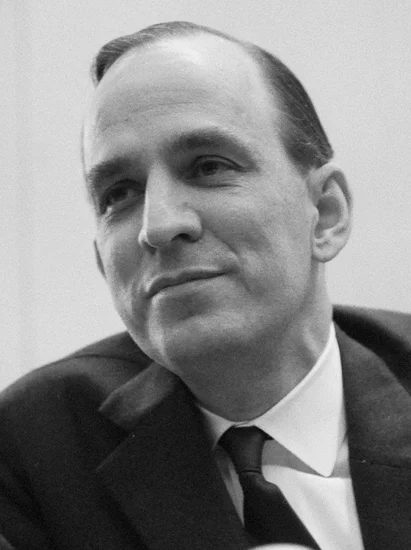
Swedish filmmaker Ingmar Bergman died at age 89, ending one of cinema’s most influential careers. His psychologically complex films explored themes of death, spirituality, and human relationships.
Bergman’s masterpieces including “The Seventh Seal” and “Persona” redefined art cinema and influenced countless filmmakers. His innovative techniques and philosophical depth elevated cinema as an art form.
2007 – Michelangelo Antonioni Dies

Italian director Michelangelo Antonioni died at age 94, coincidentally on the same day as Ingmar Bergman. His modernist films revolutionized cinema through innovative visual storytelling and existential themes.
Antonioni’s works like “Blow-Up” and “L’Avventura” challenged conventional narrative structures and explored alienation in modern society. His influence on art cinema and visual aesthetics remains profound.
2020 – Herman Cain Dies
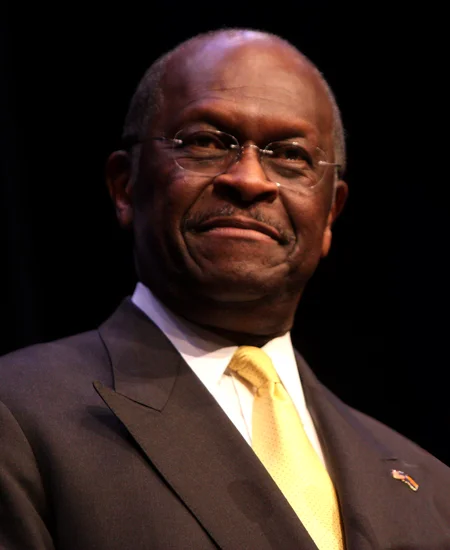
American businessman and presidential candidate Herman Cain died at age 74 from COVID-19 complications. His successful business career included leadership roles at Burger King and Godfather’s Pizza.
Cain’s 2012 presidential campaign popularized his “9-9-9” tax plan and brought business perspectives to political discourse. His death highlighted the ongoing pandemic’s impact on American political figures.
1992 – Joe Shuster Dies
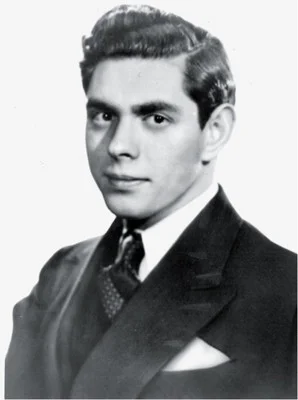
Canadian-American illustrator Joe Shuster died at age 78, leaving behind the legacy of co-creating Superman. His collaboration with writer Jerry Siegel launched the superhero comic book genre.
Shuster’s artistic vision defined Superman’s iconic appearance and established visual conventions for superhero comics. His creation became a global cultural phenomenon spanning multiple media platforms.
2003 – Sam Phillips Dies

American record producer Sam Phillips died at age 80, concluding a career that shaped modern popular music. His Sun Records label launched the careers of Elvis Presley, Johnny Cash, and Jerry Lee Lewis.
Phillips’ innovative recording techniques and talent for discovering new artists revolutionized the music industry. His work at Sun Records helped create rock and roll and transform American culture.
Holidays and Observances on July 30
Independence Day in Vanuatu
Vanuatu celebrates its Independence Day commemorating freedom from joint British-French colonial rule in 1980. The Pacific nation’s independence marked the end of the unique “condominium” arrangement that had governed the islands.
Traditional ceremonies blend indigenous customs with modern celebrations throughout the archipelago. The holiday represents national unity and cultural pride for Vanuatu’s diverse population.
International Day of Friendship

The United Nations designated July 30 as International Day of Friendship to promote dialogue and understanding between cultures. This global observance encourages building bridges across communities and nations.
The day emphasizes friendship’s role in promoting peace and fostering cooperation in addressing global challenges. Various organizations worldwide organize events celebrating cultural diversity and international cooperation.
Feast of the Throne in Morocco
Morocco observes the Feast of the Throne celebrating the monarchy and national unity. This important national holiday honors the Moroccan royal family and the country’s constitutional monarchy.
The celebration features official ceremonies, cultural performances, and community gatherings across the kingdom. The observance reinforces Morocco’s monarchical traditions and national identity.
